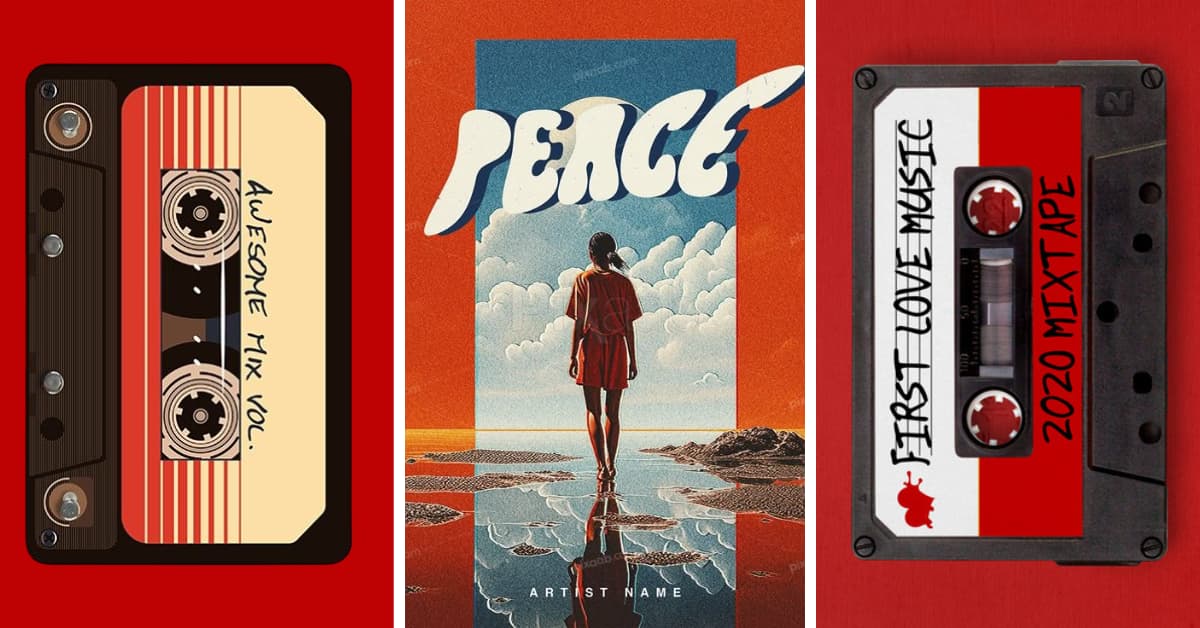Albums are professionally produced collections of songs meant for commercial release, while mixtapes are casual compilations often given away for free to build buzz.
For example, Think Drake’s “Views” (album) versus his “If You’re Reading This It’s Too Late” (mixtape). Both great music, but created with different goals and budgets in mind.
In this article, we’ll break down everything you need to know about albums and mixtapes. We’ll cover their key differences, what makes each format unique, and help you spot the difference between them.
What Is The Difference Between A Mixtape And An Album?
Let’s explore the key features that differentiate these two music formats from one another.
| Features | Mixtape | Album |
|---|---|---|
| Production Quality | Casual, low-budget recording | Professional studio production |
| Purpose | Promotion, exposure, and fan engagement | Commercial sales and radio play |
| Cost | Free or very cheap | Paid release with a profit motive |
| Structure | Random songs, no specific theme | Cohesive theme or story throughout |
| Release Method | Independent or online platforms | Record label distribution |
| Content | Original songs, covers, remixes | Mostly original compositions |
| Marketing | Grassroots, word-of-mouth | Major promotional campaigns |
What Is A Mixtape?
A mixtape is a collection of songs that artists create to showcase their skills, experiment with soundtracks, or connect with fans without commercial pressure or expensive production costs.
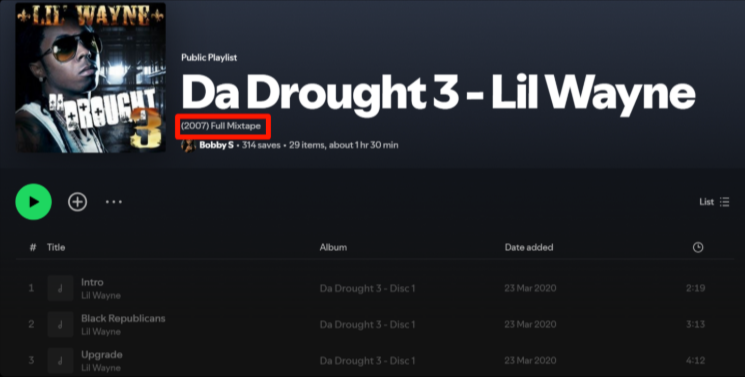
1. Free Distribution: Mixtapes are typically given away for free to build an artist’s fan base and create buzz around their music.
2. Experimental Content: Artists use mixtapes to try new styles, rap over popular beats, or collaborate with different producers without major label constraints.
3. Casual Production: Most mixtapes are recorded in home studios or smaller facilities, giving them a raw, authentic sound that fans often love.
4. Rapid Release: Artists can drop mixtapes quickly without lengthy approval processes, allowing them to stay relevant and respond to current trends.
5. Fan Engagement: Mixtapes help artists connect directly with their audience and test new material before creating a full album.
Popular Mixtape Examples:
- Lil Wayne – “Da Drought 3”
- Chance the Rapper – “Acid Rap”
- 50 Cent – “Guess Who’s Back?”
- Future – “Monster”
- Kendrick Lamar – “Overly Dedicated”
What Is an Album?
An album is a professionally produced collection of songs that represents an artist’s complete artistic vision, designed for commercial success and widespread distribution through major platforms.
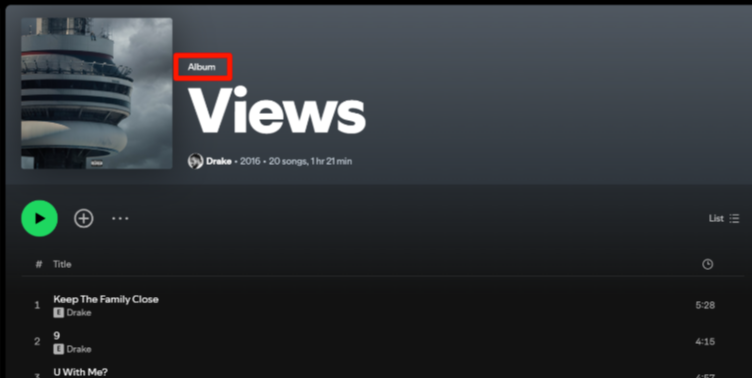
1. Professional Production: Albums are recorded in high-end studios with experienced producers, engineers, and mixing specialists to ensure top-quality sound.
2. Commercial Intent: Albums are created to generate revenue through sales, streaming, and radio play, with marketing budgets to support their success.
3. Cohesive Theme: Most albums tell a story or explore specific themes, with songs flowing together to create a unified listening experience.
4. Label Support: Albums typically involve record labels that provide funding, promotion, and distribution to maximize reach and sales potential.
5. Single Releases: Albums usually feature singles that get promoted separately on the radio and streaming platforms to drive album sales.
Popular Album Examples:
- Drake – “Views”
- Kendrick Lamar – “DAMN.”
- J. Cole – “2014 Forest Hills Drive”
- The Weeknd – “After Hours”
- Travis Scott – “Astroworld”
For Travis Scott fans, explore the Top 10 Travis Scott Songs of All Time.
Why Are Mixtapes Not Albums?
Mixtapes aren’t albums because they’re created for different purposes. Mixtapes focus on artistic freedom and fan connection, while albums prioritize commercial success and professional polish.
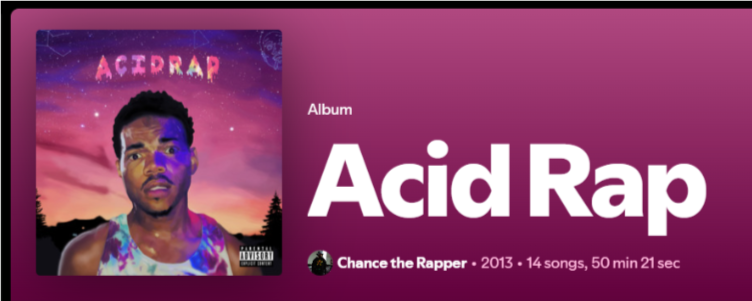
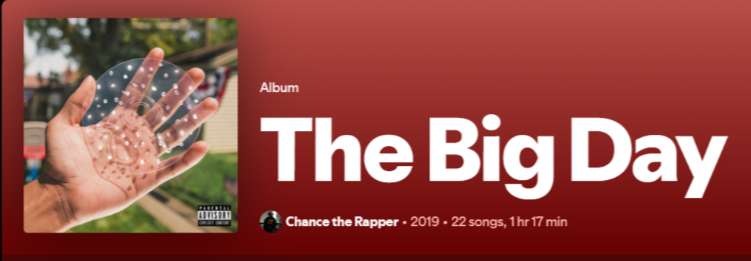
For example, Chance the Rapper’s “Acid Rap” was a free mixtape that let him experiment creatively, while his later “The Big Day” was a commercial album with major label backing.
Is A Mixtape Just A Playlist?
Mixtapes aren’t playlists. Mixtapes contain original content created by artists, while playlists are simply collections of existing songs curated by listeners or streaming services.
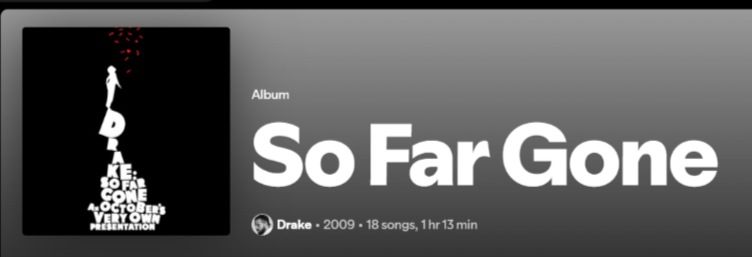
Drake’s “So Far Gone” mixtape features his original raps and vocals, whereas a Spotify playlist like “RapCaviar” just compiles existing songs from different artists.
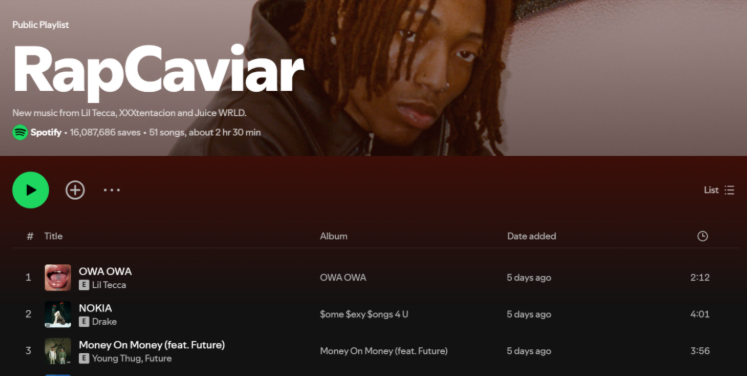
Explore more such comparisons at Spotify vs YouTube Music.
Album Vs Mixtape: How To Avoid Copyright?
Understanding copyright is essential when creating either format, as both involve different legal considerations and potential risks.
- Original Beats: Create your instrumentals to avoid copyright issues.
- Sample Clearance: Get permission before using existing music samples.
- Cover Songs: Obtain mechanical licenses for cover versions.
- Fair Use: Understand that fair use has strict limitations.
- Legal Advice: Consult entertainment lawyers for complex situations.
- Publishing Rights: Know who owns the publishing on any music used.
How To Tell If It’s A Mixtape Or Album?
You can usually tell by checking the price, production quality, promotional support, and whether it’s sold through major retailers or given away for free online.
For example, Future’s “DS2” was sold as an album on iTunes and streaming platforms, while his “Monster” mixtape was released free on DatPiff.
Conclusion: Albums Are Commercial, Mixtapes Are Promotional
Albums represent an artist’s polished, commercial work designed for mainstream success, while mixtapes showcase their raw creativity and serve as stepping stones to bigger projects.
Both formats play important roles in the music industry, offering artists different ways to express themselves and reach their audience.
If you’re a music fan trying to understand your favorite artist’s catalog or an aspiring musician planning your next release, knowing these differences will help you make better decisions.
Ready to dive deeper into music? Start exploring your favorite artist’s mixtapes and albums to hear the difference for yourself!
FAQs
Section 80 by Kendrick Lamar is technically a mixtape despite its album-quality production.
Marketing strategy to lower expectations and create hype for “free” content.
EP means Extended Play – shorter than albums with 3-6 songs.
Lil Uzi Vert’s Pink Tape is officially classified as an album.
Alice in Chains’ Jar of Flies is an EP, not a full album.

